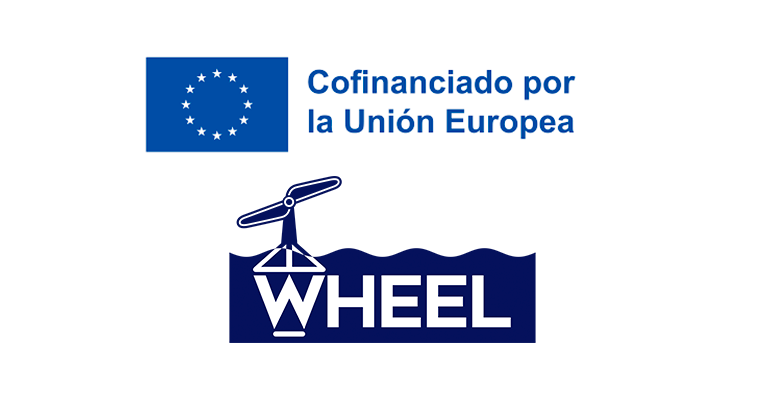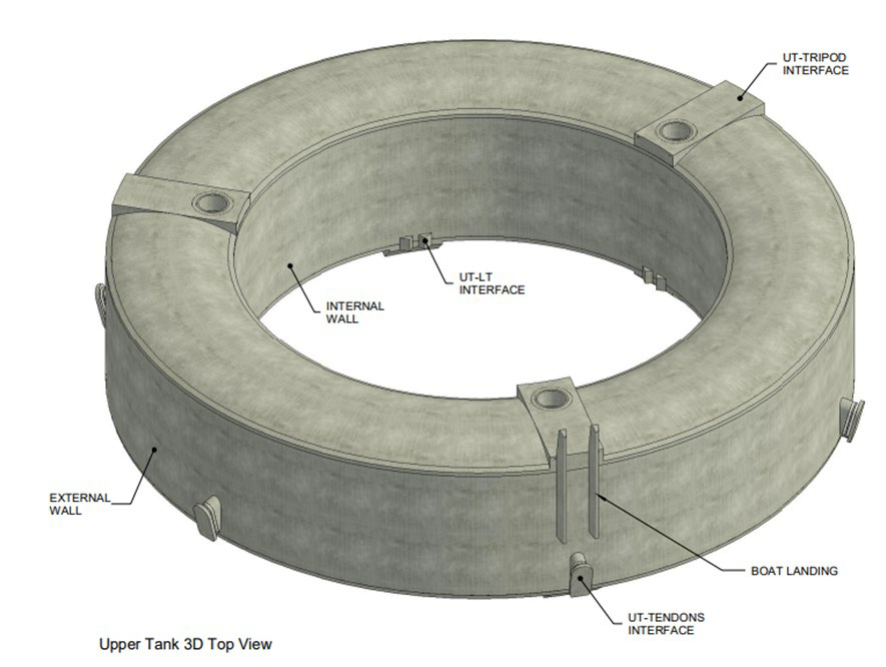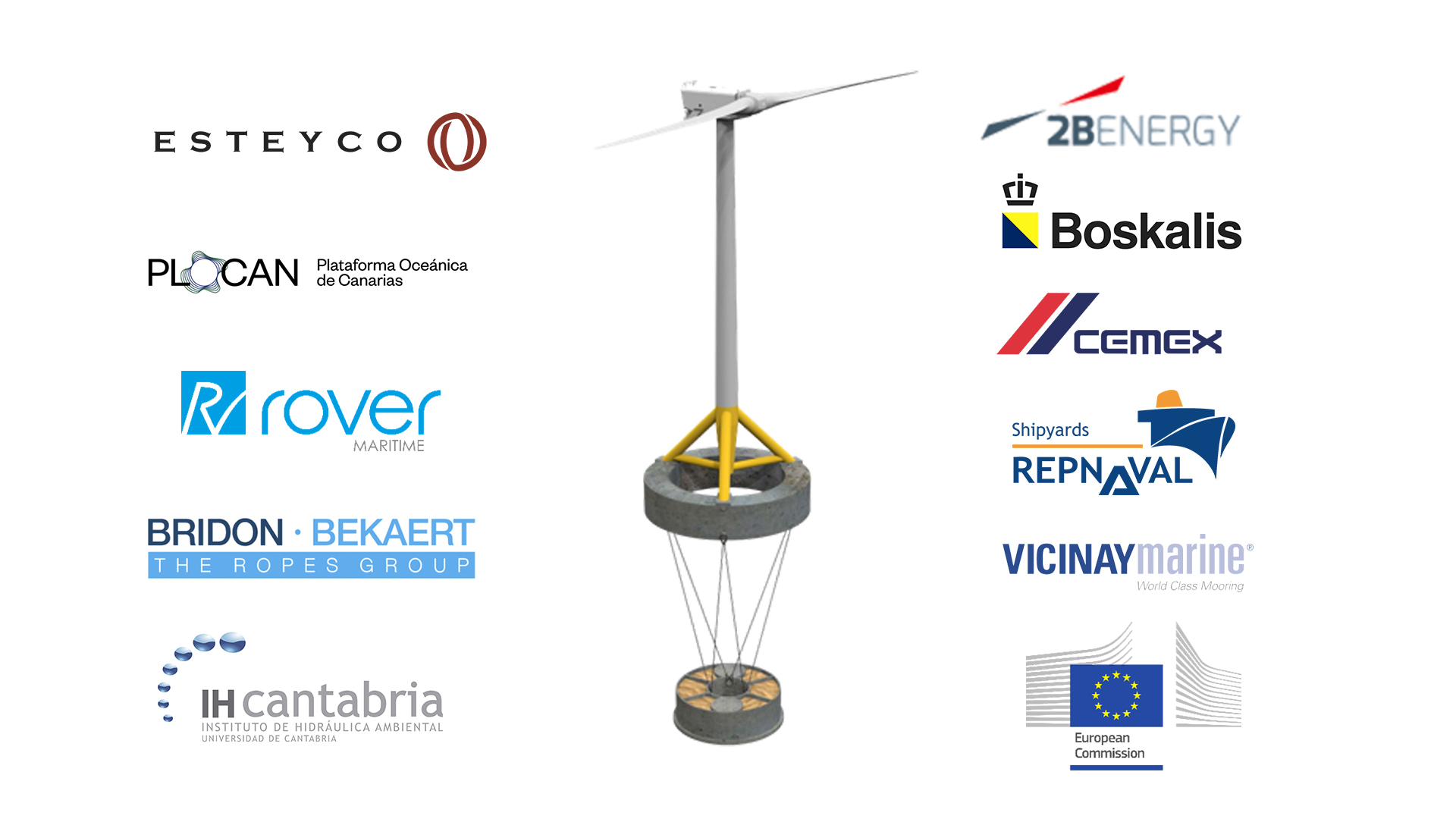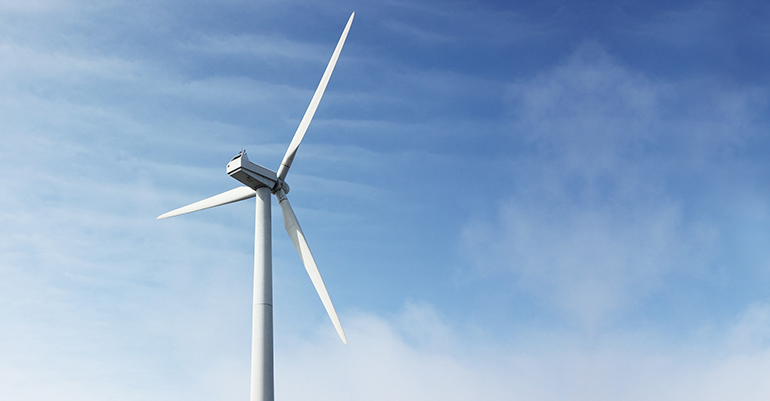Concession of the European project "WHEEL"
The European Commission has granted Rover Maritime funding for the WHEEL project "Wind Hybrid Evolution for Low-Carbon Solutions"
The European Commission has granted Rover Maritime funding for the WHEEL project "Wind Hybrid Evolution for Low-Carbon Solutions", within the framework of the Horizon Europe programme. The project has a budget of more than 25 million euros.
The WHEEL project, led by ESTEYCO, brings together a consortium of renowned European companies and research institutions with extensive experience and a leading position in the marine and renewable energy industry.
This multidisciplinary team joins forces to finalise the complete demonstration of a disruptive technology, by testing this revolutionary technology for floating wind power on a real scale. This will demonstrate the competitiveness and advantages it can bring to European aspirations to lead the development of offshore wind power worldwide.


The general objective of this 5 year- long project is the demonstration, at a pre-commercial technological level, of a floating system for wind technology specially designed for its location in deep waters. This system will contribute to an effective industrialization strategy, cost reduction and minimized carbon footprint. It will also allow an essential step towards reducing LCoE (Levelized Cost of Energy), while addressing the scalability, suitability, and availability of port infrastructure, as well as the sustainability and circularity of floating offshore wind power.
The development and demonstration necessary to reach the sought TRL (Technology Readiness Level) will be achieved through the design, installation, certification and testing of a fully operational 6MW pilot unit, which will show the revolutionary advantages that WHEEL technology can offer to the floating wind industry. It will be installed in deep water in the PLOCAN test area (Canary Islands, Spain), where it will be closely monitored for a period sufficient to support the commercialization of the technology.
The project has completed its detailed design phase, which was endorsed by European Commission experts, receiving the go-ahead to advance to the construction phase. This advance to the next phase 2 of construction of the prototype entails the receipt of the next package of European funds assigned to the project.
Update August 24




